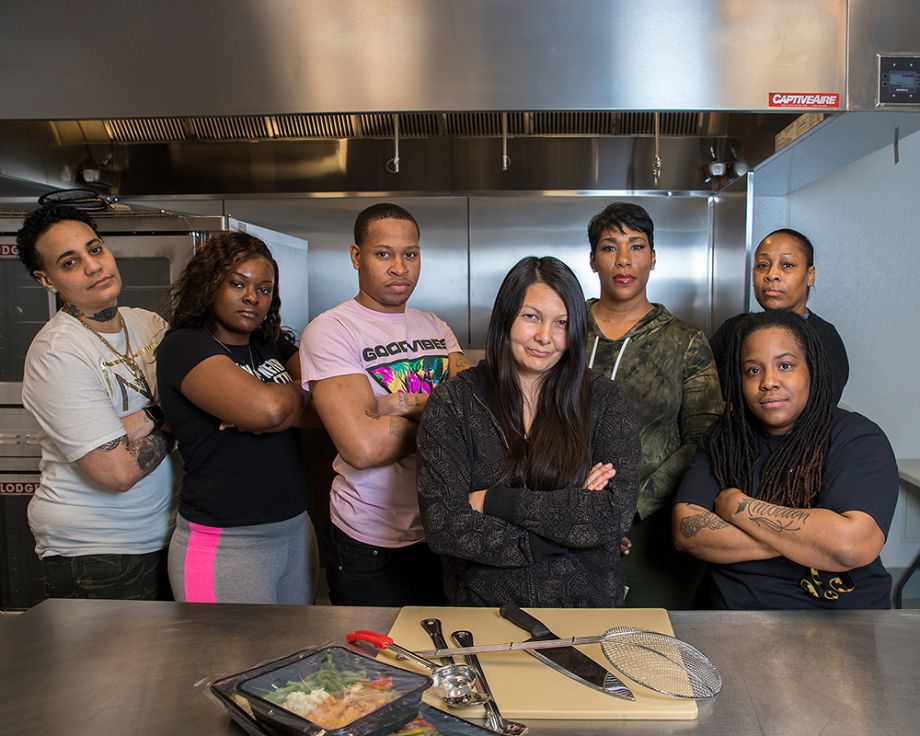The bootstraps narrative implies it’s possible — maybe even “the American way” — to pull yourself out of poverty. The story of ChiFresh Kitchens is instead about helping each other.
Next City senior economics correspondent Oscar Perry Abello first reported this story in May 2020 after ChiFresh Kitchens opened its doors as a worker-owned commercial kitchen on the West Side of Chicago. Today it is expanding into a new facility that will multiply the kitchen’s capacity to cook and deliver meals from 500 per day to 5,000.
In this episode of the podcast, Next City executive director Lucas Grindley talks with Abello and with one of the worker-owners, Kimberly Britt, plus the consultant who helped remove systemic barriers to starting a business, Camille Kerr.
ChiFresh is special not only because it’s a worker cooperative, but also because it’s founded by worker-owners who are formerly incarcerated. These women, and so many like them, are eager to work. Among 25-44 year old formerly incarcerated people, 93.3% are either employed or actively looking for work, according to The Prison Policy Initiative. Compare that with 83.8% among the general population. Meanwhile, employers say they’re open to hiring people with criminal records. But the evidence from The Prison Policy Initiative shows that having a record reduces employer callback rates by 50%.
The numbers are undeniable — people are leaving prison only to return home with no job prospects.
“If I could go back and tell myself when I was just feeling so discouraged, that you know, that to just stay encouraged and to keep pushing on,” said Britt. “Because it did, it took a lot of strength. It took a lot of encouraging words from myself and from others to just keep my head above the clouds and push. And so that's mainly what I keep reminding my old self to just keep pushing and stay encouraged, because it's gonna pay off one day.”
“It takes everything and it's still hard, you know?” says Kerr, the founder of Upside Down Consulting that supports worker-ownership of businesses across the country. “So I wouldn't say it's easily replicable. I don't think that's the lesson. I think the lesson is that if we marshall resources together and think about how we can do things differently, it completely works.”
Listen to this episode below, or subscribe to Next City’s podcast on Apple and Spotify.









